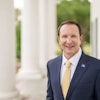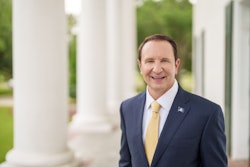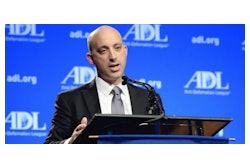Campus and Community: An Enduring RelationshipFrank Lloyd Wright once said, “No house should ever be on a hill or on anything. It should be of the hill. Belonging to it. Hill and house should live together each the happier for the other.” Similarly, it’s neither realistic nor responsible for a university to believe it can be in a community — sharing only a zip code — but not of it. And even if we could build the equivalent of moats, safe on our bucolic campuses, disturbed only by the occasional siren in the distance, would it be wise to exist on such islands? Of course not! Today, the question colleges face is not whether they should be separate from their communities, but how they can best contribute to advancing their communities.
Increasingly, colleges and universities are recognizing their obligation to work with, and within, their communities — and we are asking how we can serve, rather then telling our community partners what is best for them. One of the finest examples of this approach was set by Trinity College, in Hartford, Conn., which, in 1996 embarked on an ambitious effort to revitalize its blighted neighborhood by working with local organizations. Today it’s considered a model for how colleges strengthen themselves when they work to strengthen their communities.
But enlightened self-interest should not be our only motivation for getting involved. No matter where our institutions are, communities are typically quite proud to be their home. Our neighbors place great faith in us — not only to educate their sons and daughters, but also to provide cultural and social enrichment, and access to resources that benefit the entire community. They trust us to be long-term, dependable partners who “will roll up our sleeves” and work beside them. They trust that even as presidents come and go, faculty change, and classes graduate, our commitment to the places in which we “live” will not falter.
In recent years, many campuses have conducted economic impact studies to quantify what they “give back” to their communities. But such studies tell only part of the story. They can’t measure the value of the hours that faculty, staff and students spend volunteering in food banks, schools, counseling centers and other community agencies; they don’t provide data on the time and service committed to long-term civic projects; and they can’t quantify the intellectual resources that are tapped to effect social change within a community.
Like colleges across the country, the 13 institutions within the University System of Maryland have their own strategies for building campus-community relationships, reflecting their unique missions and their communities’ distinct needs.
Coppin State College assumed the management of nearby Rosemont Elementary School in 1998, after the state declared it a low-performing school. Coppin took a number of steps, including hiring staff and providing basic health care services at the Baltimore school. Now, students at Rosemont — and their families — are reaping the rewards of this unusual partnership. The University of Maryland, Baltimore, with schools of dentistry, law, medicine, nursing, pharmacy and social work, provides service through community and campus-based clinics and mobile outreach efforts. The university also is an anchor for the revitalization of Baltimore’s West Side.
The University of Maryland, College Park, because of its size and scope has many links with the community — including well over 100 partnerships with schools in Prince George’s County and beyond.
Could colleges and universities be doing more to help solve the problems that their towns and cities face? Absolutely. But in 2002, the college that erects barriers to guard its multi-million-dollar buildings and manicured lawns is fast becoming an anachronism. — Dr. William E. Kirwan is chancellor of the University System
of Maryland.
© Copyright 2005 by DiverseEducation.com


















